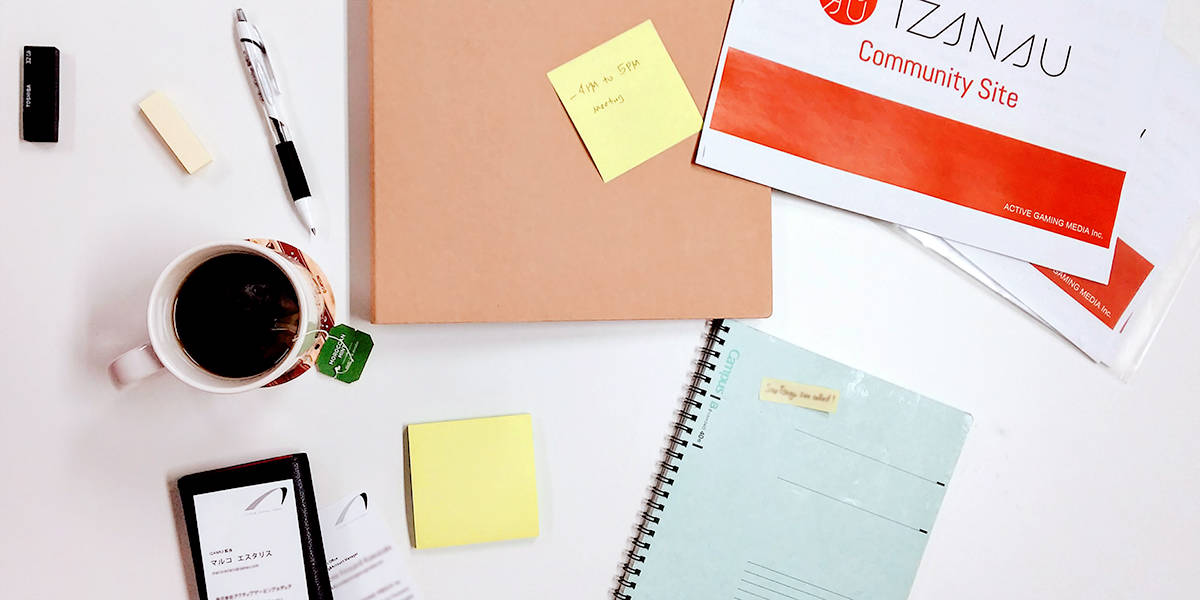From Baguio to Tokyo - Doing an internship in Japan
Tuesday, March 20, 2018
Part 2: Intern at Active Gaming Media

In the last article, I have shared with you my experience in Fukuoka. Let’s now focus on my life in Tokyo!
So here I am now, working for Active Gaming Media on the IZANAU project.
Starting last January, I immediately noticed that working for a company as an employee was very different from my previous part-time experience. First thing, I feel that I had been given much more responsibilities: creating business proposals for partner companies, visiting companies for presentations, contacting partners and even writing articles - such as the one you are reading right now.
While Active Gaming Media president is from Spain, the company’s customs are alike other Japanese companies’, and just like my former Waiter job in Fukuoka, it is a unique chance to unravel mysterious rules and puzzling phrases! I have found odd how important are the 名刺 (meishi, business cards). You wouldn’t imagine how powerful is this little piece of paper! Luckily, before my first business meeting, a 先輩 (senpai, a “mentor”) came to me and taught me the ABC of the meishi.
I thought it was just about exchanging business cards, but how naive was I. There are rituals behind every gesture, so here are some tips from first hand to avoid a faux-pas. First, your business card has to be lower than the customer’s one when handing it to them as a symbol of respect. Even after the exchange been done, you’re not over yet: you shall not tidy them yet in your cardholder. You have to get them aligned in front of you in a particular order during the meeting instead.
Hey psst, are you interested in more details about the business card’s customs? Let us know and check this article for more info!
When studying Japanese, my teacher told me to always add “さん” or (san) “さま” (sama) after their name or family name when addressing people as a form of respect. However, I discovered that it is not always true: when talking about your colleagues to someone from another company in a business meeting, you actually have to skip it. Even for the 社長 (shacho, president of a company)! To be honest, I am still having a hard time on this one.
Another thing! Writing a formal email inside and outside the company is following quite strict rulings.
Don’t you dare forget to write お疲れ様です (otsukare sama desu, “thank you for your hard work”*) when writing emails to fellow employees, or confuse it with お世話になっております (osewa ni natte orimasu, “thank you for doing business with us”*), a sentence to use with clients only. Doing so will guarantee you a little time with your boss one-to-one. Ah, and conclude your emails with a よろしくお願いいたします (yoroshiku onegai itashimasu, “best regards”*). It is a bad manner to skip it.
Last but not least, the greetings. When starting the day, nothing unusual to say hello to everyone by a cheerful おはようございます (ohayou gozaimasu, good morning). Yet, when meeting your colleague in a doorway, in the street during a break, or may your eyes cross at the fax machine, you have to say お疲れ様です (otsukare sama desu, “thank you for your hard work”*). As the sun sets and you have finished your work, cheer your colleagues with a お先に失礼します (osaki ni shitsurei shimasu, Sorry to leave first*) before taking the door!
Did you enjoy today’s sneak-peek in the office? Let us know on our Facebook page and Twitter account!
Keep connected to get the third and last part of my journey: advice to succeed in the workplace in Japan!
*These phrases have a much larger meaning than this and would need a whole article about. We shall come back on these in the future!
About the Author









